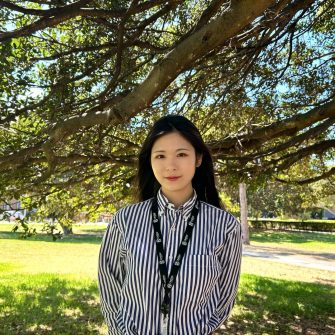Research Title: The role of enterotoxins in Staphylococcus aureus Keratitis
Supervisor: Professor Mark Willcox
Co-supervisor: Dr Muhammad Yasir
Research
Microbial Keratitis is a vision-threatening ocular infection that occurs to millions of people each year annually. It is characterized by the inflammation and infection of the cornea. This condition is typically caused by microorganisms, such as bacteria, fungi, or viruses, infiltrating the cornea. One of the most common causes in by the ba...
Research Title: The role of enterotoxins in Staphylococcus aureus Keratitis
Supervisor: Professor Mark Willcox
Co-supervisor: Dr Muhammad Yasir
Research
Microbial Keratitis is a vision-threatening ocular infection that occurs to millions of people each year annually. It is characterized by the inflammation and infection of the cornea. This condition is typically caused by microorganisms, such as bacteria, fungi, or viruses, infiltrating the cornea. One of the most common causes in by the bacterium Staphylococcus aureus.
S. aureus has a wide variety of virulence factors that contribute to its pathogenicity, including gene products related to adhesion, immune evasion, destruction of tissue and toxins. Previous studies at SOVS and elsewhere have found that strains isolated from ocular infections possess different genes encoding virulence factors. S. aureus ocular isolates possessed unique subsets of genes encoding for enterotoxins compared to non-ocular isolates.
Enterotoxins are a family of superantigens, known as the culprit of foodborne disease. Enterotoxins have the capacity to bind Major Histocompatibility Complex (MHC) class II molecules and T cells, resulting in the formation of a tri-molecular assembly, thereby eliciting an acute inflammatory response and shock. However, the role of enterotoxins in S. aureus keratitis remains to be unknown.
Hence, my study is designed to elucidate the role of staphylococcal enterotoxins in ocular infections. I will use molecular biological, microbiological and immunological techniques. The findings of my study will lead to a better understanding of how S. aureus causes keratitis and may lead to improved therapies for this potentially blinding disease.
Biography
I obtained my bachelor's degree in biology in 2018 and subsequently achieved a master’s degree in microbiology, earning recognition as an outstanding graduate in 2022. In 2023, I accepted a UIPA scholarship from UNSW. I am supervised by Professor Willcox and Dr. Yasir. My research interests are centred on bacterial infection, antibiotics, and biofilm. My PhD project focuses on the pathogenic determinates of S. aureus associated with keratitis.
Education
2023 - current PhD candidate SOVS, UNSW Sydney, Australia
2019 - 2022 Master of Science in Microbiology, Department of Life Science, AAU, China
2014 - 2018 Bachelor of Science in Biotechnology, Department of Life Science, AAU, China
Awards
University International Postgraduate Award (UIPA), UNSW Sydney, Australia (2023)
Award of Outstanding Graduate, Anhui Province, China (2022)
National Scholarship, China (2021)
First-class Academic Scholarship, AAU, China (2020)

